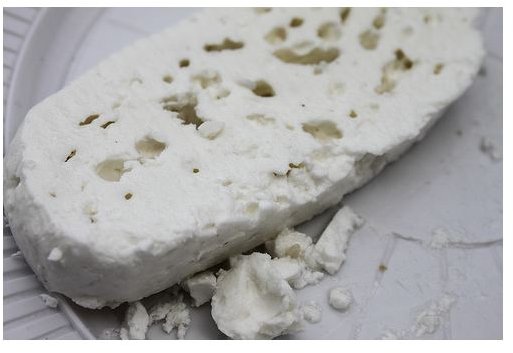Foods That Are Good for Your Teeth
Eating for Teeth
Avoiding sugary and starchy foods is of course important for dental health, but to really prevent damage and improve well-being you should also consider eating plenty of foods that are good for your teeth as well. Mineral-rich foods, natural crunchy foods, good sources of vitamin C and anti-bacterial foods are all beneficial for your mouth. Consider including the following in your diet and support your teeth.
Milk and Other Dairy
Drinking milk is good for your teeth and dairy products such as cheese and yogurt are also beneficial. Milk is a natural source of sugar, containing lactose, but this is the least harmful type of sugar in terms of tooth decay, according to the BBC Health article, “Diet and Dental Health.” As a source of minerals for healthy teeth, including calcium and phosphorus which are needed for teeth formation and magnesium which supports the uptake of calcium, dairy products are an important part of a diet for healthy teeth.
Cheese in particular is also beneficial as it increases the flow of saliva, which helps to neutralize acids that can contribute to tooth decay. Saliva from chewing certain foods also helps to remove food particles from teeth and gums. Cheese fat also has an antibacterial action on the surface of teeth.
Yogurt, which is also rich in minerals such as calcium and magnesium is another great food for your teeth. Eating yogurt regularly also helps to balance the bacteria in the body, reducing bacteria in the mouth and bad breath. In a Japanese study involving 24 participants, eating yogurt every day reduced the amount of hydrogen sulphide in the mouth, which causes bad breath. Eating yogurt also lowered levels of plaque and gum disease after a period of six weeks. Choose sugar-free or low-sugar yogurts to support your teeth and gums.
Nuts
Eating raw nuts is also good for your teeth. Nuts such as almonds, walnuts and cashews are excellent sources of calcium, phosphorus and magnesium and like dairy products they help with remineralization. They will not stick to teeth but instead will stimulate gums because of their crunchy nature. Cashews in particular are good for keeping plaque from sticking to teeth. Stay away from sugary, salted or processed nuts. Raw nuts make a healthy snack for your teeth.
Fresh Fruit and Vegetables
Plenty of fresh fruits and vegetables are essential for dental health. They are packed with vitamins and minerals, which can help prevent tooth decay. Plenty of vitamin C and vitamin A are important for healthy gums and teeth. Vitamin C is needed for gum healing and collagen formation. Vitamin A is needed for new cell growth and for teeth formation. Minerals found in fruits and veggies, including calcium and
magnesium, are needed for a healthy mouth. Crunchy fruits and vegetables such as raw peppers, carrots, apples and broccoli are also excellent for stimulating the flow of saliva and gums. Try to eat a green salad each day, adding plenty of sliced raw vegetables such as radishes, cauliflower and even some nuts and cheese.
While citrus fruits and tomatoes are an important part of a healthy diet be careful of too much acidity from these foods. They are high in vitamin C and other important nutrients; it is not necessary to exclude them from the diet. Eating them with other foods is an excellent way to neutralize the acids that can harm teeth. When drinking orange, grapefruit or tomato juice drink through a straw to avoid your teeth being exposed to the acids.
Green Tea
Green tea may also help to prevent dental problems such as tooth decay and gum disease. Green tea has anti-adhesion properties, stopping plaque acid. It has anti-bacterial properties, helping to defend teeth and gums from a build-up of harmful bacteria. It also supplies a small amount of natural fluoride, which is important for preventing tooth decay. 95 percent of the fluoride found in the body is in the bones and teeth. While an excess of this trace mineral is not recommended, the small amount found in green tea combined with the cleansing properties of this drink make a cup of tea beneficial for a healthy mouth. Try drinking a cup of green tea in the morning instead of coffee.
Including these foods that are good for your teeth in your diet is an important part of dental care. Brush and floss two times a day, avoid sugar and too much starch, which encourage bacteria in the mouth, and see your dentist regularly.
References
Linus Pauling Institute. Fluoride. (https://lpi.oregonstate.edu/infocenter/minerals/fluoride/)
BBC Health. Diet and dental health. (https://www.bbc.co.uk/health/treatments/healthy_living/nutrition/dietary_dental.shtml)
BBC News. Natural yoghurt beats bad breath. (https://news.bbc.co.uk/2/hi/health/4367723.stm)
WebMD Diet and Oral Health. (https://www.webmd.com/oral-health/guide/diet-oral-health)
Balch, Phyllis A. " Prescription for Nutritional Healing." Fourth Edition (Penguin Books, 2006).
photo by John Morgan/flickr
photo by Klearchos Kapoutsis/flickr
